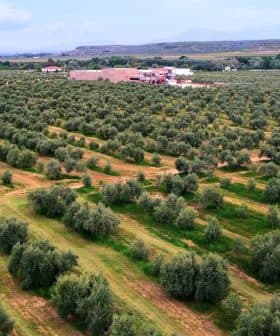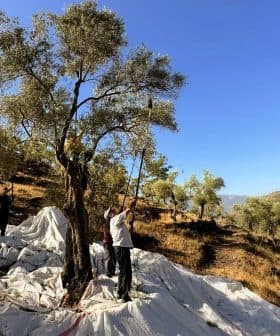E.U. to Halt Imports Derived from Deforestation
The European Council and European Parliament have agreed on new regulations to halt the import of goods produced in deforested areas, impacting major commodities like palm oil, timber, and beef, among others. The new rules will be formally adopted soon, with a deadline set for December 31st, 2020, for products produced on land free from deforestation or forest degradation to be allowed in the European Union market.
An agreement just reached between the two legislative bodies of the European Union (the European Council and the European Parliament) will halt the import of goods produced in deforested areas. The new rules will make the 27-member country block the most relevant economic area halting the import of many products derived from palm oil, timber, soy, coffee, cocoa, rubber and beef.
The European Council and the European Parliament will soon formally adopt the regulation. After two years, the list will be revisited and other products might be added.
The European Union is a major consumer of the listed commodities, and its imports are known to play a major role in the progressive loss of forest cover.
See Also:E.U. Moves to Block Deforestation-Derived Imports, Including Some Palm OilAccording to the Food and Agricultural Organization of the United Nations (FAO), from 1990 to 2020, 420 million hectares of forest were lost, mostly because of the conversion to farmland and other uses. That area is approximately equal to the dimension of the European Union itself, which covers 423.4 million hectares.
“Large-scale commercial agriculture (primarily cattle ranching and cultivation of soya bean and oil palm) accounted for 40 percent of tropical deforestation between 2000 and 2010, and local subsistence agriculture for another 33 percent,” the latest FAO report on deforestation noted.
Technology will play a major role in the new import infrastructure, as GPS-tracking will be used by operators to pinpoint the origin of their products.
According to a note by the European Council, the new rules will also reduce bureaucratic hangups for both operators and authorities. Small companies will be able to team up with large companies to prepare the due diligence declarations associated with the exported goods.
The new regulation uses the term “forest degradation.” Borrowed from the FAO, forest degradation is defined as, “the structural changes to forest cover, taking the form of the conversion of naturally regenerating forests and primary forests into plantation forests and other wooded land and the conversion of primary forests into planted forests.”
As noted by the European Council, the new regulation sets December 31st, 2020, as the cut-off date. This means, “that only products that have been produced on land that has not been subject to deforestation or forest degradation after such date will be allowed on the Union market, or to be exported.”
Other measures will include a benchmarking system, which assigns a specific risk rating based on deforestation to European Union countries and outside partners. The risk categories (low, standard, high) will affect the level of bureaucracy and types of control processes required for export.
A high-risk rating will also trigger tighter controls on the traded goods, with checks on up to nine percent of operators. Countries with a standard risk rating will receive checks on three percent of operators, and those with a low-risk rating will receive checks on one percent of operators.
“The agreement also takes into account human rights aspects linked to deforestation, including the right to free, prior and informed consent by indigenous peoples,” the Council wrote.
Fines will be “proportionate to the environmental damage and the value of the relevant commodities or products concerned.” The minimum fine will equal at least 4 percent of the operator’s yearly turnover in European Union exports. Additionally, the operator will receive a temporary exclusion from public procurement processes and access to public funding.
After formal ratification by the European Union, the new regulation will give large operators 18 months and small operators 24 months to adjust to the new rules.









